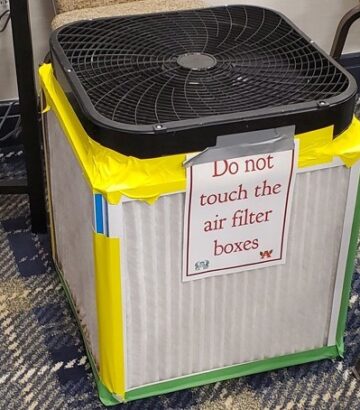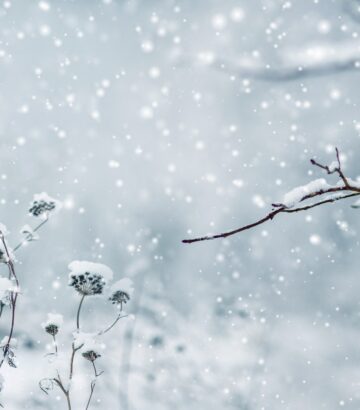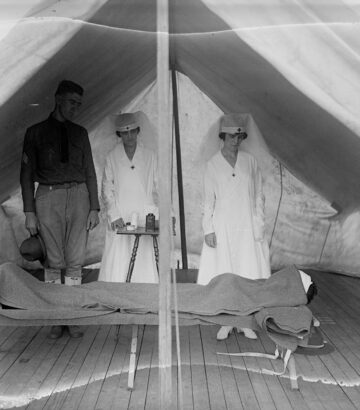How to Show Up for Someone with Long COVID, You Love
This is the second of a series of posts on Long COVID by David Brasure. See parts 1, 3, 4, 5, 6, 7, 8, and 9.
Let’s start with something uncomfortable. You probably love your family member. You want to help. But if you’re being honest, you’re also frustrated. Confused. Maybe even a little resentful. You didn’t sign up for this. You got sick and got better. They didn’t. And now it’s been months—years, even—and they’re still lying in bed, still canceling plans, still not “bouncing back.”
You might tell yourself you believe them. But a part of you still wonders: Is this really real?
Yes. It’s real. And no, you’re not a bad person for struggling with that.
Let’s talk about why it’s hard to believe someone with Long COVID. Let’s talk about what’s going on in your brain, and what’s going on in theirs. Then we’ll talk about what to do next—how to actually show up.
Why We Struggle to Support People Who Are Suffering
We like to think we’re rational, compassionate people. But the brain doesn’t work like that. It wasn’t designed for slow, confusing, invisible suffering. It was built for fast, visible, clear-cut emergencies. Sabertooth tiger? Run. Fire? Scream. Someone saying, “I feel like my bones are filled with cement, and I can’t remember how to cook pasta”? Your brain doesn’t have a slot for that.
It also doesn’t like things it can’t fix.
That’s the thing about Long COVID. You can’t fix it. Not with vitamins, not with yoga, not with positivity. Not even with the right doctors most of the time. The medical system doesn’t know what to do with it yet, either.
So your brain does what it always does when it hits a wall. It turns away. It says:
“They’re just depressed.”
“They need to push through.”
“They’re being dramatic.”
“They’re faking it.”
That’s not cruelty. That’s your brain trying to protect itself from helplessness. From ambiguity. From grief.
But if you want to love someone through this, you have to override that wiring. You have to consciously choose compassion.
What Long COVID Really Is
Let’s get real. You can’t support someone with Long COVID if you don’t understand what they’re actually dealing with.
This isn’t just being tired.
This isn’t just being out of shape.
This is a disease with measurable biological changes in the body and brain. It hijacks the immune system. It damages blood vessels. It inflames the heart. It messes with the brain’s ability to use oxygen. It causes microclots, neuroinflammation, viral persistence, mitochondrial dysfunction—things you’d never wish on your worst enemy.
Long COVID is what happens when a virus doesn’t just pack up and leave. It digs in. Sometimes it lingers in tissues like the gut, the brain, or the spleen. Sometimes it doesn’t even need to stay. It can wreck the body and walk away, leaving the immune system confused and panicking like a car alarm that won’t shut off.
It can happen after mild infections. It can happen to people who were vaccinated. It can happen to young, healthy people with no prior conditions.
This isn’t speculation. The U.S. National Academies of Sciences, Engineering, and Medicine confirmed it. Every major government—red and blue—acknowledges it. Senators like Tim Kaine and Roger Marshall have spoken about it. Even Robert F. Kennedy Jr., head of the NIH, has committed funding to study it because his own son has it.
And yes, some people do seem to have been affected by the vaccines. That doesn’t make Long COVID less real. It makes it more urgent to understand and treat.
What Makes This Illness So Damaging to Relationships
You know what else makes this so hard? It’s invisible. People with Long COVID often disappear quietly. They stop coming to work. They stop returning texts. They stop showing up for birthday parties and book club. Eventually, they just vanish. And no one knows why.
That’s how chronic illness works. It isolates. Not because the sick person wants it to, but because we don’t know how to deal with it.
Cancer used to be like this. So did multiple sclerosis. So did HIV. People whispered. They looked away. They blamed the sick. We’re doing the same thing now. And we’ll regret it later.
How to Actually Help
Here’s the part where you stop asking, “How do I fix them?” and start asking, “How do I show up even if I can’t fix it?”
1. Take a Minute Before You Enter the Room
Pause before you walk in. Breathe. Ask yourself: What does this person need from me right now? Is it advice? Or is it just presence?
2. Stop Problem-Solving Unless Asked
They’ve already tried every supplement, every protocol, every Reddit thread. Chances are, they know more than you do. Respect that. Ask if they want ideas before you offer them.
3. Believe Them, Out Loud
Say it. “I believe you.” Even if you don’t fully understand it. Even if it’s hard. Those three words can repair years of hurt.
4. Don’t Make It About You
Yes, it’s hard for you. But they’re living it. If you need support, talk to someone else about your struggles. Don’t unload on them.
5. Help With the Boring Stuff
Pick up groceries. Fold some laundry. Drive them to an appointment. Chronic illness isn’t dramatic. It’s death by a thousand paper cuts.
6. Keep Inviting Them, Even If They Say No
Let them know they’re still part of the world. Even if they can’t come to the party, they want to know they were wanted.
Final Thoughts: Compassion Is a Muscle
Compassion isn’t just an emotion. It’s a skill. It takes effort. It goes against some of your most primitive brain wiring. But it’s also what makes us human.
You’re not going to be perfect. You’re going to mess up. You’re going to get tired and say the wrong thing. That’s okay. What matters is showing up again.
Long COVID may be new, but the challenge it poses is ancient: Can you love someone even when they don’t get better?
The answer isn’t easy. But it starts with trying.
Learn More
National Academies Long COVID Consensus Report (2024)
NIH Long COVID Research Initiative
Microclot Evidence: Pretorius et al, 2021
Viral Persistence in Tissues: Stein et al, 2022
Sen. Tim Kaine Statement on Long COVID
Sen. Roger Marshall Long COVID Hearing












